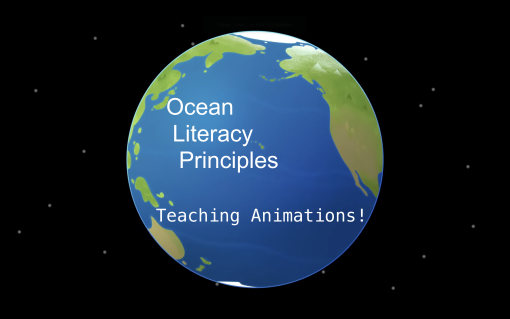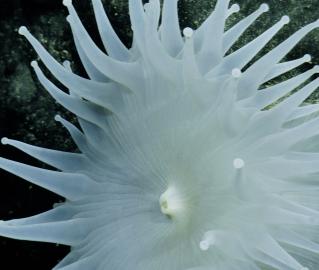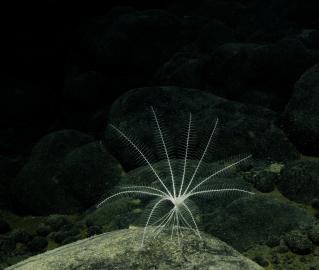Seven Ocean Need-to-Knows: the Ocean Literacy Principles

In honor of National Ocean Month, and with funding from the National Marine Sanctuary Foundation, we’ve created these teaching animations based on The Ocean Literacy Framework, developed by many scientists and educators from the ocean sciences education community.
Ocean Literacy Principle 1: One Global Ocean
The Atlantic, Pacific, Arctic, Southern, and Indian oceans are named as separate things, but are actually interconnected as one global ocean. Given the ocean’s crucial role in regulating the Earth’s climate, understanding the science behind our One Global Ocean is an important element in preserving our planet’s unique biodiversity.
Ocean Literacy Principle 2: The Ocean Shapes Earth
Have you ever thought about how ocean and life in the ocean shape the features of Earth? Understanding how the ocean influences our planet’s surface helps us plan for a future of continual change.
Ocean Literacy Principle 3: The Ocean Influences Weather and Climate
Did you know that oceans influence our weather and climate? The ocean has had, and will continue to have, a significant influence on climate change by absorbing, storing, and moving heat, carbon, and water. Learning about the ocean is key as as any changes to these crucial processes impact the climate we all depend on!
Ocean Literacy Principle 4: The Ocean Makes Earth Habitable
Did you know that tiny plants in the global ocean generate at least half of the oxygen that we breathe? Today around 21% of our atmosphere is made up of oxygen — plants, land and sea, sustain this vital atmospheric balance that is critical to supporting the global biodiversity we know and love.
Ocean Literacy Principle 5: The Ocean Supports Earth’s Diversity
Did you know that the ocean supports the majority of life on our planet? Understanding the ocean’s role in supporting biodiversity and Earth’s ecosystems is a crucial part of knowing our planet.
Ocean Literacy Principle 6: Humans and Oceans Are Interconnected
Have you ever considered that without the ocean, there wouldn’t be life on our planet? Near a coast or far from it - the ocean impacts every person and living thing! Together we can take care of the global ocean that takes such good care of us.
Ocean Literacy Principle 7: The Ocean Is Largely Unexplored | Nautilus Live
Did you know that we’ve explored less than FIVE percent of our global ocean? Exploration, experimentation, and discovery are required to better understand our ocean’s systems and processes. We need close collaboration among scientists, engineers, artists, and explorers to continue our exploration and understanding of the global ocean.
Learn more about the Ocean Literacy Framework
The Ocean Literacy Framework was developed by many scientists and educators from the ocean sciences education community. Their efforts built on previous work to define ocean literacy, assess what the public knows about the ocean, and redress the lack of ocean-related content in state and national science education standards, instructional materials and assessments. Explore the Foundations section to learn about how the ocean sciences education community came together to create these documents and ignite a movement within ocean sciences and beyond.





